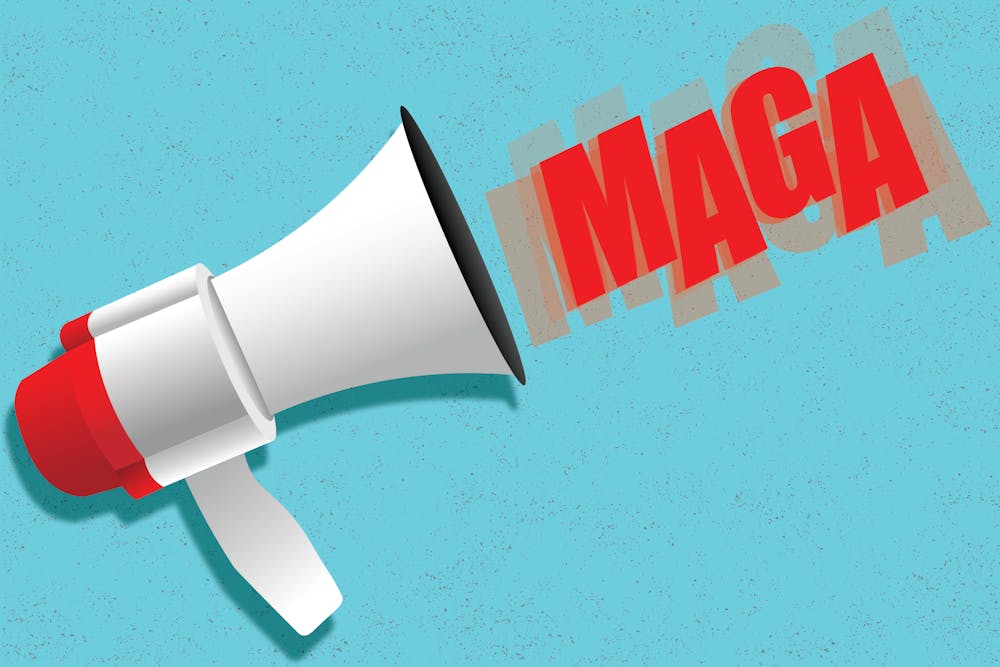Media oligarchs and national partisan leaders alike believe your mind is for sale. On Jan. 20, Donald Trump was sworn in, encased both by the walls of the rotunda and the wall of multimedia oligarchs lined shoulder-to-shoulder.
The presence of Meta founder and CEO Mark Zuckerberg, Washington Post and Amazon executive Jeff Bezos, TikTok CEO, Shou Zi Chew and a handful of others signaled these communication barons’ tacit, if not explicit, support of the incoming administration. Behind the billionaire’s row sat appointees to the Cabinet. The message was clear: big business first, governance second. This is cause for concern for any American who cherishes their freedom of speech as well as their freedom of thought.
Our country’s democracy is built on a belief in the marketplace of ideas. The First Amendment seeks to protect our freedom of speech, even speech that is false and inflammatory, with the trust that competition and debate will ultimately allow the truth to emerge — the invisible hand always reaches out to ensure society’s best interests are met. However, when the platforms where information is dispersed and discourse is conducted are consolidated into the hands of a few ultra-powerful, profit-motivated people, the marketplace of ideas becomes significantly less free.
The integrity of America’s fourth estate, free and fair journalism, is under attack — and it has been for a long time. But only now has this onslaught appeared to be coming from within, rotting from the head down. Local journalism has operated under duress for years as conglomerates force regional papers to sell or face their extinction. What appears now, literally, is an emerging monopoly of news, media and narrative under the purview of the executive branch.
We see it in Bezos killing the Washington Post’s editorial on the 2024 Presidential Election, and in the resignation of a Pulitzer-winning cartoonist whose portrayal of Bezos offended him. We see it in TikTok's politically theatrical death and then resurrection, in Shou Li Chew’s words, with the help of President Trump. Multiple users claim to experience increased content moderation, especially pertaining to political subjects.
While many may consider their daily scrolling on a social media app of choice as low impact, there are so many unseen ramifications that must be considered. The content you absorb every day on your phone is not arbitrary; every word, picture and video was chosen for you by an algorithm, put in place under the supervision of these tech billionaires. Facebook's algorithm was largely responsible for supercharging the 2017 Myanmar genocide through the boosting of hateful and genocidal rhetoric. These algorithms are designed to control public thought, to push narratives and sway your opinion — and it works.
Amid this communication crisis, ironically placed in the Information Age, we wonder how to assure our autonomy and freedom of speech. The solution isn’t "all or nothing." It’s practically impossible, and similarly harmful, to cut oneself off totally from legacy media or vernacular media. Yet, whenever we consume streams of information we must remain vigilant and ask ourselves what stories are being told, for what reason and in what way?
As journalistic credibility and public confidence in the media are becoming increasingly compromised, it is important to seek information from all levels. Billionaires’ involvement in the transmission and consumption of mass media is not only undisguised, but now on clear display — a chilling, unmistakable development under the most famous roof in the nation. Trust must be invested into the local means of communication that have yet to be bought.
We’re not purporting that local news is perfect, or that The Daily Tar Heel is the gold standard of journalism at large, but as this digital gilded age continues to encroach upon and restrict our intellectual autonomy, the importance of varied sources cannot be overlooked. Your data reaped by the algorithm has political, monetary consequences. As you scroll, understand that your eyes are a valued commodity to others, but remain your own. Your attention is now the currency of power, but it is still yours — yours to apportion and spend as you choose.




